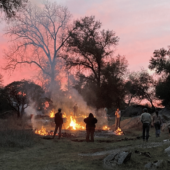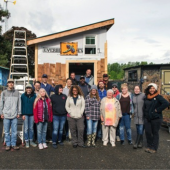
Abstract: The Keepers of the Flame Initiative, now in its fifth year, is a dynamic partnership between cultural fire practitioners, UC Davis faculty, and a diverse study body. This experiential learning initiative at the University of California, Davis centers Indigenous Fire Workshops, focusing on cultural fire. By centering Indigenous science and teaching approaches, this initiative inherently becomes high impact. High Impact Practices (HIPs) are pivotal educational interventions that promote holistic student development and experiential learning. These practices encompass features such as setting appropriately high expectations, experiences with diverse people and circumstances, sustained student engagement over an extended period, meaningful interaction with faculty and peers, public demonstration of learning, real-world relevance of classroom learning, and structured opportunities for reflection. The Keepers of the Flame Initiative incorporates two types of powerful high impact practices: collaborative group projects and community-based learning. These educational practices significantly enrich student learning and particularly benefit historically underserved students as well as broader student populations. I analyze HIP features within the Keepers of the Flame Initiative using survey data gathered in winter 2023, while also delving into the importance of Indigenous-led educational approaches. Indigenous perspectives and educators are crucial in broadening educational approaches, providing a pathway to uphold sovereignty of diverse knowledge systems, and nurturing a sense of responsibility towards land stewardship and environmental justice.
Continue Reading
Abstract: Two tiny houses were constructed for the homeless at Dignity Village, Portland, Oregon, by Portland Community College students in two sustainability courses over 6 terms, using different approaches. By engaging the business community at large, various non-profits, parents of the students, and residents of the homeless village, the idea of community-based learning (CBL) was embraced by the instructor. CBL created an environment in which lack of experience and wide cultural variation were transformed into a cooperative community of inspiration.
Continue Reading